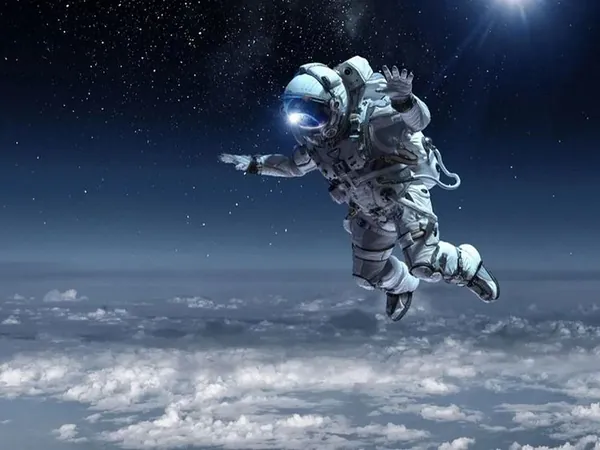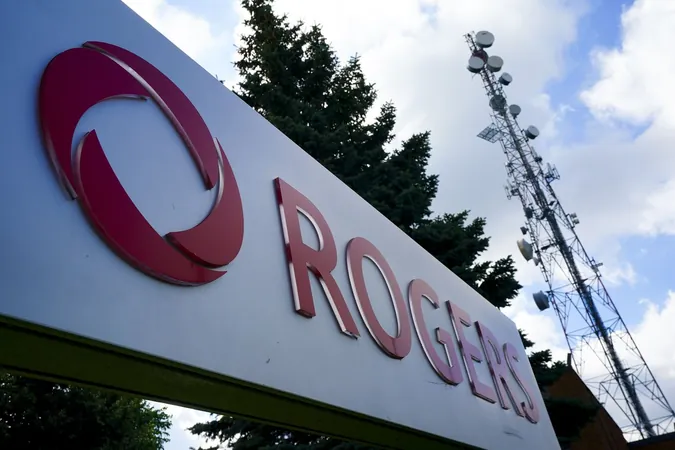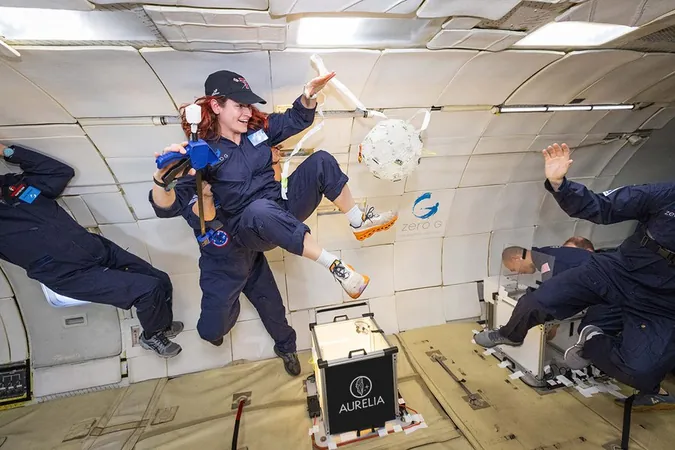
Why Astronaut Health Is Crucial for the Future of Space Exploration
2025-06-07
Author: Amelia
A Global Race to the Stars
Countries around the world are ramping up their space endeavors, with Pakistan making headlines as it prepares to select its first astronaut for experiments aboard the Chinese Space Station. This push isn’t just limited to national programs; private companies like SpaceX, Blue Origin, and Virgin Galactic are redefining who gets to explore space by offering flights to everyday citizens.
The UAE's Ambitious Journey
The United Arab Emirates has solidified its standing as a leader in space exploration by successfully launching Project Hope. This achievement made the UAE the first Arab nation and the fifth globally to reach Mars, while also developing its astronaut program—currently featuring Hazza Al Mansouri and Sultan Al Neyadi, the latter of whom holds the record for the longest Arab spaceflight.
NASA's Lunar Ambitions and Future Mars Missions
Looking ahead, NASA's Artemis program is gearing up for its imminent mission to recommence lunar explorations, flying three astronauts alongside one Canadian to the Moon. This effort is part of a broader international collaboration, known as the Artemis Accords, which has garnered the support of over 50 nations, including the UAE. Recently, space pioneer Elon Musk revealed SpaceX's intentions to set its sights on Mars, with a goal of possibly sending humans there as early as 2028-2029.
Health Challenges in Space: A Deep Dive
A recent publication has shed light on the critical health challenges that astronauts face in the extreme conditions of space. From physiological to psychological hurdles, the research emphasizes that the deep space environment offers limited understanding of how extended radiation exposure and other factors may impact human health. Previous studies suggest that radiation on the Moon could be 200 to 1,000 times higher than on Earth.
Telemedicine: The Future of Astronaut Care
The rise of telemedicine has revolutionized astronaut healthcare, especially in the wake of the COVID-19 pandemic. However, potential communication delays—ranging from 4 to 20 minutes one way—could complicate urgent healthcare delivery on Mars. For instance, if an astronaut suffers a heart attack, it would take precious time for mission control to receive the news and respond, underscoring the necessity for self-sufficient medical systems on distant missions. Integrating AI could drastically improve healthcare delivery, aligning with the UAE’s ambitious National AI Strategy 2031.
Mental Health: The Hidden Challenge of Long Space Missions
Mental wellness is another daunting challenge astronauts may face on long-haul missions like those to Mars, which could take between 7 to 10 months. The psychological strain of isolation, coupled with the reality of being physically separated from family for years, raises concerns about the mental resilience of space travelers.
Human Health Must Lead in Space Exploration
As a passionate advocate for space medicine and health, my background as a medical doctor and space researcher reinforces my belief that astronaut health must take precedence in all crewed missions. Regardless of technological advancements in engineering, navigation, or propulsion systems, the human body remains the most fragile yet vital element. Until we can ensure astronauts' health and safety throughout their journey, no crewed missions—no matter how technologically feasible—should be authorized.









 Brasil (PT)
Brasil (PT)
 Canada (EN)
Canada (EN)
 Chile (ES)
Chile (ES)
 Česko (CS)
Česko (CS)
 대한민국 (KO)
대한민국 (KO)
 España (ES)
España (ES)
 France (FR)
France (FR)
 Hong Kong (EN)
Hong Kong (EN)
 Italia (IT)
Italia (IT)
 日本 (JA)
日本 (JA)
 Magyarország (HU)
Magyarország (HU)
 Norge (NO)
Norge (NO)
 Polska (PL)
Polska (PL)
 Schweiz (DE)
Schweiz (DE)
 Singapore (EN)
Singapore (EN)
 Sverige (SV)
Sverige (SV)
 Suomi (FI)
Suomi (FI)
 Türkiye (TR)
Türkiye (TR)
 الإمارات العربية المتحدة (AR)
الإمارات العربية المتحدة (AR)